A dog-loving castaway!
I’ve always been a fan of Michael Jecks. His writing is the kind we all crave to publish – writing that flows from one page to the next (and in all the best timeframes). But his Youtube writing videos are excellent also and most recently, I have lusted after his country rambles with the dogs, the kind of country walking that makes bells ring in my soul. Which makes me wonder where will be his ‘desert island’ and what will he choose to read?
Over to you, Michael…
This is one of those simple-sounding ideas that rapidly becomes brain-fryingly difficult! It is one thing to choose a few authors, or a few books within a single genre, but what do you do when you have all the thousands of books you’ve ever read in every category?
Well, first you try to be original, and then you stop pulling your hair out and try to be logical. So here’s my entirely logical, reasoned, well-conceived list of ten… Except there are a few extras…
1. To remind me that I am, after all, a crime writer, I would have to take a crime book. I love so many crime writers that this gave me a real problem at first, and then I picked an obvious (for me) book: Light Cavalry Action by John Harris.
If you haven’t read any John Harris, I envy you: you have a treat in store. He is, for me, one of the greatest thriller writers. Yes, I really like Frederick Forsyth and John le Carré (both of whom could have been here) but John Harris’s classic for me hits all the buttons. Superb thriller, brilliant crime novel, and court drama, all thrown together into an historical context that encompasses both World Wars.
The book begins in 1939, just as the British Expeditionary Force is being prepared to go to the aid of France. But when Lt General Sir Henry Prideaux is slated for the command, a letter appears in the press casting doubt on his competence. The defamation case takes the jurors back to 1919, when the British troops were participating in the Russian Civil War against the Bolsheviks. This story is simply brilliant. I picked it up as a teenager, and I still have the original Arrow Books version from 1968.
2. Still on the theme of crime, I couldn’t leave The Golden Age of Murder by Martin Edwards behind.
This book is a history of the early members of the Detection Club, the somewhat secretive group of writers that was originally formed by such writing luminaries as GK Chesterton, Agatha Christie, Dorothy L Sayers, Baroness Orczy, AA Milne and many others. Martin Edwards is now the President of the Club, and he has gathered together the histories of the original members in this weighty tome. However, Martin is a brilliant author (I still think his “InDex” is one of the most imaginative short stories every written), and he has spent a decade or so with this book. Originally it was to have been a simple history of the Club itself, but as he delved into the archives and discovered more about each of the members, he had the inspiration to write this book like a crime story in its own right. With adultery, the war-damaged, the frivolity and jealousy of the 1930s, as well as murderous characters, this book works on many levels.
Like Martin, I am privileged to be a member of the Club, and on the desert island this would remind me of my friends and colleagues and my extreme good fortune to be a crime writer.
3. But sadly, life is not all roses and murder. A fellow needs other interests.
An abiding interest of mine has always been history, and when I first decided to write books myself, I was hugely inspired by the writer who kept me amused and delighted for my later teens and all through my twenties: George MacDonald Fraser.
I first read Flashman when I was about fifteen, and to say it gripped me would be a serious understatement. I loved it from the first moment when Harry was thrown over by his father’s mistress. The language, the concept of a rich kid bully who achieves the highest honours in the Empire by means of great good luck – or misfortune, when you consider the enormity of his cowardice in the face of danger – was a joy to read when I was young, and has remained so even to the present day.
However, the inspirational aspect of the books was the superb detail of MacDonald Fraser’s research mixed with his effortless prose style. Although I would have loved to take one of his Flashman series to my desert island, I think it’s his war memoir, Quartered Safe Out Here, that I would have to carry. This is the story of his war experiences in the Second World War as a young soldier in the hideous Burma campaigns. He has real insights into the lives of his companions in the platoon, as well as the leadership of his officers. It is the best-told memoir of the last Edwardian army, and anyone who wants to know about British soldiering should read it. For me, it led directly to my trilogy set in the Hundred Years War, especially the first: Fields of Glory.
4. Still on the theme of history and inspirational writers, I have to include The Greatest Traitor by Ian Mortimer.
I read of this book in a review section of a Sunday paper, back in the happy days when such things existed. The reader raved about this book, especially the ending, and I thought that since the main character was the dreadful Sir Roger Mortimer, I should read this book. I was, after all, writing about that period.
Sir Roger was the first Earl of March, and the favourite warrior of King Edward II. However he turned against the King because of the royal infatuation with Sir Hugh le Despenser. Because of Despenser, Mortimer was arrested and sentenced to death, but he escaped from the Tower of London (one of, I think, only two men to do so), and made his way to France, where he entered into an adulterous relationship with King Edward’s Queen, Isabella. The two returned to England with a small army, and Roger deposed the King and took over as Regent.
Of course you can’t have that sort of behaviour without repercussions, and Roger came to a sticky end. Still, he did manage to pack in a lot of excitement in his moderately short life, even leaving us with the deeply unpleasant proposition of Edward II’s death by red-hot poker at Berkeley Castle – although Ian Mortimer and I (and many other historians now) believe that the evidence shows very conclusively that Edward did not die there, but instead went into retirement in north-west Italy.
It is a superb book, written by a master, and it would remind me why I became so fascinated by the period of Edward II’s reign that I wrote 33 novels in one series about it!
5. When I was a child, there was one series that gripped me and was a constant source of lack of sleep because I would turn my light off, then hide under the blankets with a torch and a dose of Richmal Crompton.
Her “Just William” series entertained me for ages. I still have my original copies from my childhood (when my son allows me to look at them). The first ones are seriously thick, printed on cheap, soft post-war paper that was a millimetre or more thick, so that the books are themselves can be up to two inches in height when laid on their side.
These books have had their spines broken and torn off, the pages are yellowed and smell of ancient libraries, and many have loose leaves where the stitching has given up the ghost, but it doesn’t matter. As soon as I enter William Brown’s world, modern life disappears, and a comfortable fug seems to surround me. Those books remind me of long days walking and playing in the sun as a boy. I may not have had Ginger, Henry and Douglas, but I had two good friends, and although they never understood the idea of being Outlaws, nor of running away into the woods (there were no large woods where we lived), still, when I pick up and start to read Just William or any of the others, I am back in my childhood. I love those books.
I confess, mature adult as I am, a few years ago I retrieved all my William stories from my parents, and had a week’s marathon reading session. And I enjoyed every moment.
6. Okay, I admit it. Yes, just like so many other teenagers in the seventies, I also read The Hobbit and The Lord of the Rings.
The Hobbit was great and I loved it. I read it at the age of eleven, I think, and it was a sort of coming of age experience. At that age, I was ready to move on from Michael Bond’s Paddington Bear and the William series, and this new world of hobbits, dwarves, elves, goblins and dragons was massively exciting. I loved the concepts of brotherhood, of courage, and of the quest to reach the Lonely Mountain and liberate the gold from Smaug. I still prefer the book to the film, by the way.
However, I wouldn’t take that with me. When I put the Hobbit down, I was desperate for something further, and by great good fortune, the one book edition of The Lord of the Rings was available. I picked it up, and was immediately entranced.
It must have been 1972 or so. That edition was read three times before, in a stupid urge to spread the good word, I lent it to a friend. The book is still here. As when it was returned to me, the front cover is separate, the spine broken in many places, and the first third has come adrift from the rest of the book. Still, the words are the same, and for me that book marked a great transition from childhood to maturity as a reader. It must be the book I have read most often of all my books (except, perhaps, my number 10 below). I still adore the story today. Of course I’d have to take it with me.
7. Since I’ve entered the realm of swords and Striders, I have to admit to a guilty pleasure.
From a very early age I loved humorous stories. For me, from the moment I discovered PG Wodehouse, I felt I had discovered a friend. With my very first set of royalties that more than covered the cost of food and drink for six months, I ordered from my favourite local bookshop one of every book of PG Wodehouse’s that was then in print. It came to, from memory, some 88 books or so, and I still have them all. They are well-thumbed. However, they are so well known to me that I wouldn’t need them on the desert island.
So, in preference, I think I’ll take my second humorist. The inventive writer who could conceive a chest made of sapient pearwood, wizards with appalling nicotine habits, witches who could be filthy minded old bats who get drunk all the time, or piercing-eyed spinsters with as much pleasure about them as a well-worn rocking chair.
I had the great good fortune to meet Terry Pratchett once. He agreed to come and give a talk to the Crime Writers’ Association when I invited him, and he was a delightful, generous-hearted, humble man who was kindness itself when talking to a roomful of authors who between them would never earn as much in a year as him.
I first came across his name in Waterstone’s in Richmond. I was there in 1984 or so, early for a meeting, and had a little time to kill. So I wandered into the haven of the nearest bookshop, and idly walked along the shelves, not looking for anything, but just seeing what might take my fancy, when I came across a slim book with a fascinating cover (yes, cover artwork does matter). I picked it up, scanned the back cover, opened it, and smiled at the first sentences.
It was the beginning of a love affair with Terry’s Discworld series. I have never been disappointed with his books, and they always make me smile. Many of them have made me laugh out loud – the only books, I think, which have ever managed that. It was Terry’s inventiveness, his terrible, terrible puns, and the superb characters. A troll? Yes. A werwolf? Yes. A vampire? Yes. And all in the Watch under Commander Vimes, surely one of the best badass police captains of any period or dimension. And all watched over by the gloriously unscrupulous Lord Vetinari. With capitalism taken to the extreme (guilds for assassins, thieves, and seamstresses – ahem) Terry was a wonderful commentator on the modern world. He is hugely missed.
Which book? I don’t think it matters. Wyrd Sisters, Mort, Witches Abroad, or Men at Arms. Perhaps the last would be best. I have an affection for Terry’s crime stories, and Vimes and Vetinari always appeal.
8. This one is a little different.
There is one book that travelled with me all over the world. When my father took early retirement, he was fortunate enough to be invited to work for the Kenya National Insurance Company in the mid-seventies, setting up their new computer systems. Part of the deal was, that his family could visit for holidays. So I flew out to Kenya several times, and mostly I took this book: Small Arms of the World, 10th Revised Edition – updated by Joseph E Smith.
Why?
I have always been interested in firearms of all types. Mostly I am a pistol shooter, which is a pain now that it’s banned in the UK, and I always loved studying the different ways that short-recoil, long-recoil, blowback, semi-automatic and full-automatic guns worked. When I was a youngster, I soaked up the mechanisms of the Colt 1911A1 compared to the DWM, the Dardick compared with the P38.
While my friends would be studying the form of the latest football teams, which inspired so much tribal violence in the seventies, I was studying how guns worked, the history of the great inventors, the perfection of the blueing on a London-made shotgun, the simplicity of the Colt Single Action Army. And this book was my bible.
The first section is a straight history, from the origins of gunpowder through the evolution of cannon and match-locks through to European developments and American designers. But then, after explaining how military weaponry moved into semi-automatic rifles and carbines and on to machine guns, the reader is taken to the second section, which is a complete history and operation manual of all current military weapons by nation.
Now, I bought this book in about 1973 or so, which means it’s rather out of date with many guns, but I don’t care. I have a more modern version of the book, the 12th, but although this is a little more up to date, it suffers in that the first 192 pages of history aren’t there. And those are the real meaty pieces of the book. The rest is fine, with descriptions of the different models of rifle, pistol, sub-machine gun and so on, with how to clean them and put them back together, but for me it’s the history of firearms that is of most interest. So for my desert island, I will take my tattered, much-travelled 10th edition, and I’ll enjoy the pictures from the Neri Frescoes and Burney Manuscripts showing knights in armour with their hand gonnes.
9. Okay, I do have other passions: I’m not only a gun fanatic, I’m also a dog fanatic – but I am not bringing a book about dogs to my desert island.
That would only make me miserable; to see pictures of Rhodesian Ridgebacks and Bernese Mountain Dogs, with none nearby for me to stroke or hug would be a form of torture.
However, I have another passion: watercolour painting.
There are some great books by brilliant painters. One of my favourite painters in the medium is Joseph Zbukvic, who has written a very good book – but it’s designed, really, to show novices how to do what he does. I have read it, but it wouldn’t keep me entertained for long, and for a desert island I would need books to hold my attention for longer periods.
So instead I’ll go to James Fletcher Watson and his book Water-Colour Painting.
I suggest you google his works. Fletcher Watson was an enthusiastic painter of the British countryside. He sketched and painted trees, rivers, hills and mountains, and always with an eye to simplicity and freshness. His book is good for new painters, but the wonderful thing is, he shows many examples of his own paintings and talks about them, about the background wash he uses, the colours for the skies, how to make clouds look real, especially when they are hiding the top of a mountain, for example, and he does so in a delightful manner that is very appealing to me.
I love his work, and have deliberately tried to emulate his style, with greater – or more usually lesser – success, and on the desert island if all I have is a stick of home-made charcoal and paper made from leaf-pulp, at least I could imagine the colours.
10. Okay, and now for the final book.
This was difficult, but when I was thinking about themes for the types of book I’d have to take with me, I kept coming back to this one.
Whenever I have moved house, one thing I have tried to imagine is, where I would put the Christmas tree. Christmas for me is a wonderful, magical period. I love winter, because it means open fires, crisp, cold mornings, it means frost, low shadows (ideal for painting) and ice. It means celebrating friendship. I adore everything about it.
There is, for me, only one book that encapsulates everything I love about Christmas, and that is A Christmas Carol. I first saw this at, I think, Dillon’s in Purley when I was about fifteen, and I quite liked it. Since then I must have read the book another six times (it competes with Lord of the Rings for my most-read book) and I have to have seen different films of it another six or seven times over the years.
Yes, it is soppy. It’s unashamed in the way it tugs at the heart-strings. But I don’t care. I am pretty soppy too, in my own way, and that book would bring back memories of my childhood, my friends, my family, more strongly than any other, probably.
So there you have it. My ten desert island books. It’s not been easy to pick them. There are many that should have been here: The Vampire, a collection of short stories edited by Roger Vadim, or Elliott O’Donnell’s Casebook of Ghosts for the authentic teenaged silliness (both highly recommended). I could have had any Michael Connelly books, most of the Arthur C Clark or Asimov titles, many other historical research books like Dungeon, Fire and Sword, which inspired me to write about the Templars … but I can’t quite bring them into my top ten.
As to the island, that creates a problem. I’ve never been to one, and on a writer’s income, I’m not likely to. However, I have been to the Scilly Isles, and I think that if I had to be dumped somewhere, one of the quieter islands would be pleasant. The islands have a feel all of their own. One day I’d like to save up and go back, with a paintbox and plenty of paper.
Ideally, with a Ridgeback to keep my company, too!
Michael Jecks
*
Thanks so much, Michael. I’m with you on the Scilly Isles, the quieter the better, and as for the books, there are so many titles that would suit me (and I dare say many others) whilst castaway. I like how eclectic a man you are with your selection and appreciate the time you have taken to tell us why.
For more on Michael’s and his spectacular list of works, please see
Twitter: @MichaelJecks
Instagram: michaeljecks
Pinterest: www.pinterest.com/michaeljecks
Facebook: www.Facebook.com/Michael.Jecks.author
Blog: www.writerlywitterings.com
YouTube: https://youtu.be/o8d93j5XIeI





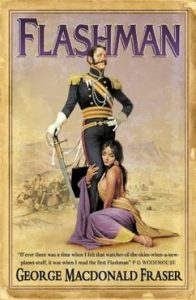
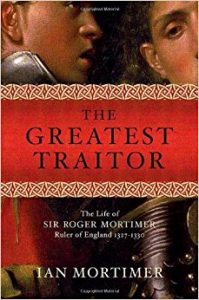
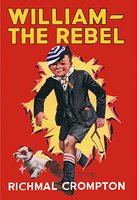





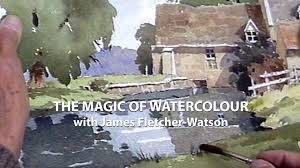
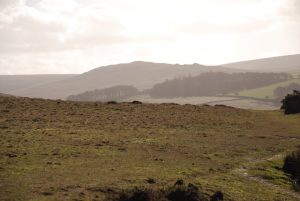
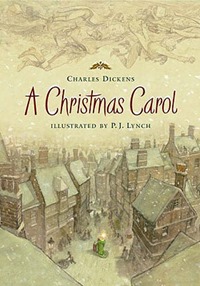
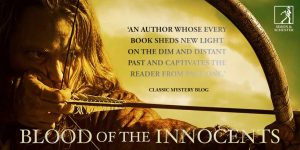
Leave a Comment